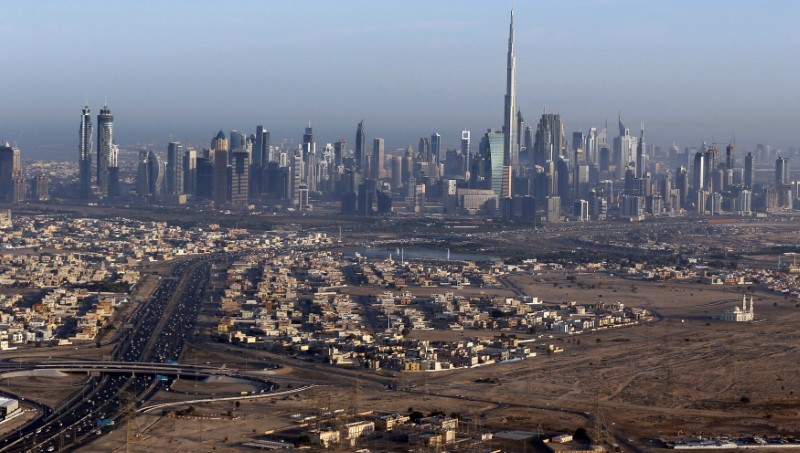By Rachel Armstrong, Lawrence White and Anjuli Davies
LONDON (Reuters) - The boss of Standard Chartered (L:STAN) has warned that Dubai risks damaging its status as a financial center as a result of the trade boycott of Qatar by a Saudi-led bloc, which includes the United Arab Emirates.
Standard Chartered is a major lender across the Middle East and CEO Bill Winters said it could become increasingly difficult for Dubai to act as a comprehensive regional hub for international companies' Gulf operations if the tension in the region continued.
"There is a lot of benefit we get from having a Dubai hub, we are looking to see what the effect of this will be," he told Reuters.
"There is a risk of turning away from the UAE."
Dubai, the largest city in the UAE, emerged as the region's main banking hub after the establishment in 2004 of a low-tax, independent zone known as Dubai International Financial Centre.
The zone now is home to over 400 financial services firms including 17 of the world's top 20 banks, according to its website, with incentives including a 50-year guarantee of zero tax on corporate income and profits.
But the diplomatic rift with Qatar could make it harder for global banks to base the vast majority of their coverage of the Gulf out of Dubai.
Winters said Standard Chartered itself had no plans to change its Gulf operations, though it is watching the situation closely.
Standard Chartered earns close to 20 percent of total revenue from its Africa and Middle East operations, with much of those being managed out of Dubai.
The UAE, Saudi Arabia, Egypt, and Bahrain on June 5 cut ties with the tiny state of Qatar over Saudi allegations that Qatar has been supporting Islamist groups. Doha has denied the allegations.
The rift has prompted some banks from Saudi Arabia, the UAE and Bahrain to reduce their exposure to Qatar in various ways, including by delaying letters of credit and investment deals.
The UAE central bank has ordered local banks to stop dealing with a number of individuals and entities with alleged links to Qatar and to freeze their assets, while advising banks to apply enhanced due diligence for any accounts they hold with six Qatari banks.
CROSS-BORDER BUSINESS
Standard Chartered employs around 128 staff in Qatar, offering personal and corporate banking in the country.
The bank appointed Abdulla Bukhowa, a Bahraini national, to head its Qatar operations in March this year. He left the country when the tensions began.
Winters said his bank does not handle a huge amount of cross-border business directly between Qatar and the United Arab Emirates, but that his staff are mindful of the situation.
"Everybody is aware of the situation – what we don't do is start pitching to UAE companies about deals in Qatar or doing business there, but we are not fundamentally changing the way we do business," he said.
Since the trade boycott began, Dubai officials have shied away from any suggestion that the rift is having a negative impact on business in the emirate. But companies doing business with Qatar have faced disruptions such as longer travel times and having to find new suppliers.
Investment banking fees in the Middle East from merger and corporate fundraising activity totaled $492 million in the first half of this year, Thomson Reuters data showed. This was 13.3 percent lower than in the same period in the previous year.
